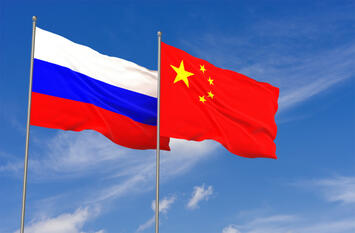
As the USA and many world leaders continue the pursuit of “unreliable electricity”, from wind turbines and solar panels, that can only generate intermittent electricity at best from available breezes and sunshine, Russia, China, France, and Finland have emerged as the leaders in nuclear power generation to achieve continuous uninterruptible, affordable, and zero emission electricity.
According to recent reports, Russia and China are currently leading the world in nuclear electricity generation which also happens to be continuous uninterruptable zero-emissions electricity.
About 60 nuclear power reactors are currently being constructed in 15 countries, notably China, India, and Russia. Together, China and Russia account for 70 percent of new nuclear plants.
The United States, which once led the way in nuclear energy, now lags with only a handful of new reactors under construction. The dominance of Russia and China is likely to continue for the foreseeable future as they invest heavily in new technology and expand their nuclear power programs.
Many of the next generation nuclear plants will require a new form of enriched uranium – called High-Assay, Low-Enriched Uranium (HALEU). Russia is currently the only country to produce HALEU which may not be comfortable for America’s national security.
Global demand for affordable, reliable, secure, and clean electricity is soaring because of rising security concerns and ambitious climate commitments. Today, both Russia and China lead the US in terms of the number of agreements with sales of their nuclear energy hardware and their services attached.
Two of America’s primary competitors for zero emission generated electricity also happen to be major geopolitical rivals: for Russia and China, nuclear exports are not just lucrative, they are an effective means of entrapment and exerting geopolitical influence. When Russian and Chinese state-owned nuclear companies export nuclear hardware and equipment, they get to set the standards on safety, security, and nonproliferation. Also, Russia and China usually structure their deals with long-term financing and nuclear fuel supply, meaning they are an avenue to cementing long-term ties and exporting their values as well.
The US was once the dominant global supplier of civil nuclear technologies, but that market position has since eroded with the emergence of new international vendors , led by Russia and China. Accordingly, America’s ability to compete in the nuclear market impacts our national security and democracy that are on the line.
Read the rest of this piece at Heartland Institute.
Ronald Stein is an engineer, senior policy advisor on energy literacy for CFACT, and co-author of the Pulitzer Prize nominated book "Clean Energy Exploitations."
Photo: courtesy Heartland Institute.












